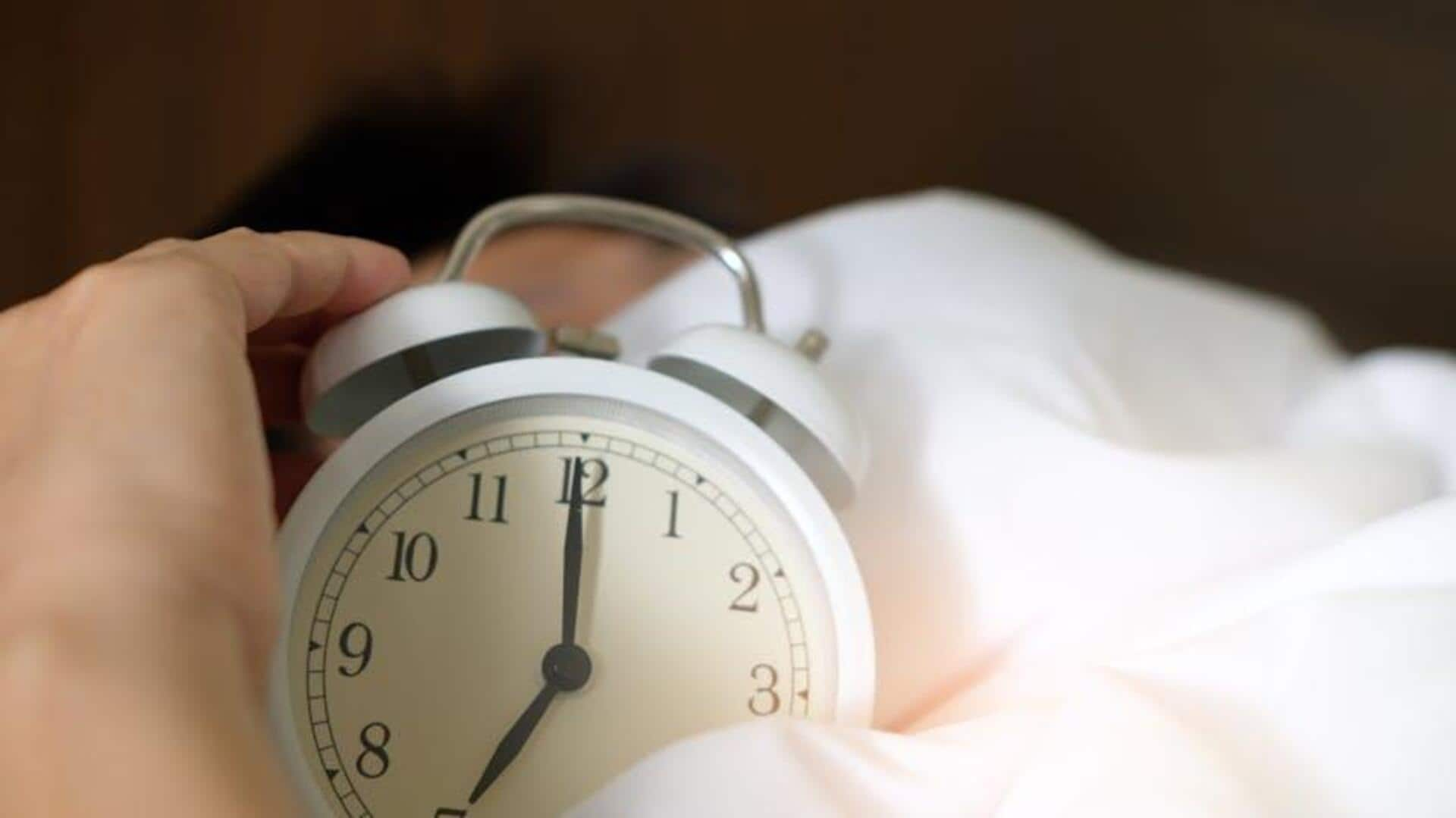
5 sleep myths you should stop believing
What's the story
Sleep is an integral part of a person's health, however, it is often surrounded by several misconceptions. These myths could result in unhealthy sleeping patterns and impact wellness. Understanding the truth behind these myths can help improve sleep quality and encourage healthier resting habits. Here, we will debunk five common sleep myths, and see how they affect our nightly rest and what can be done for better sleep.
Sleep duration
Myth: Everyone needs eight hours of sleep
The notion that we all need exactly eight hours of sleep is common, but not entirely true. Your sleep needs differ according to your age, lifestyle, and genetics. While some people thrive on seven hours, others may need nine or more to feel rested. It's important to listen to your body and adjust your schedule accordingly, instead of strictly following the eight-hour rule.
Weekend recovery
Myth: You can catch up on sleep during weekends
Many think sleeping in on weekends can make up for lost sleep during the week. But this method usually throws off the body's internal clock, resulting in erratic sleep patterns. Consistent bedtimes and wake-up times are important to keep the body clock ticking. Rather than depending on weekend recovery, focus on regularity in your daily schedule.
Snoring concerns
Myth: Snoring is harmless
While snoring is often considered a harmless nuisance, it can also be a sign of serious health concerns like obstructive sleep apnea. This condition affects your breathing while sleeping and may cause severe complications if not treated. If you snore frequently or experience other symptoms like daytime fatigue or gasping while sleeping, it's best to get a medical check-up.
Excessive sleep risks
Myth: More sleep is always better
While getting enough rest is essential, sleeping too much isn't necessarily good and could indicate health issues such as depression or thyroid problems. Oversleeping has also been associated with a higher risk of diabetes and heart disease, as well as cognitive decline in seniors. Keeping an eye on both the quality and quantity of your nightly sleep ensures you stay healthy without going overboard.
Alcohol effects
Myth: Alcohol helps you sleep better
Contrary to popular belief, falling asleep faster after relaxation techniques like a warm bath or reading a book before bed proves more effective than other methods. Research shows these natural methods enhance sleep quality without the adverse effects associated with other habits. This leads to more restorative sleep and leaves one feeling refreshed in the morning.